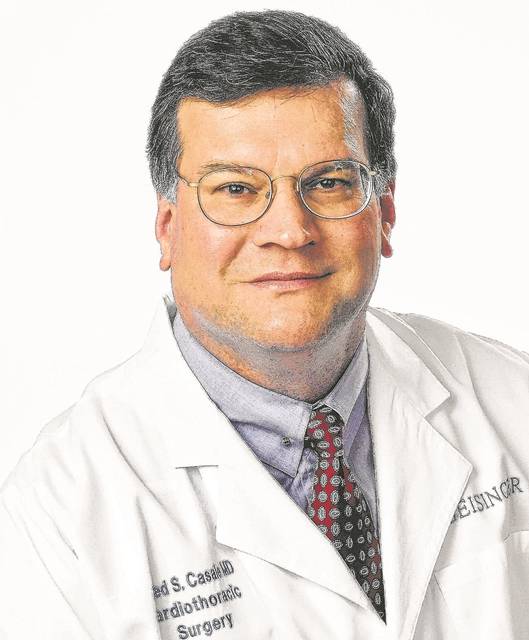
SUNDAY, Nov. 25, 2018 (HealthDay News) -- People caring for a loved one with Alzheimer's or other types of dementia should focus on four main safety issues, an expert says.
It's not safe for patients with late-stage dementia to prepare food on the stove or in the oven, Duxbury said.
Give him the keys to a different car or remove the car key from his set of keys.
Those with dementia often forget to take their pills or take pills together that can cause harmful side effects.
"Families need to remember that a person with dementia does not live in the same reality that we live in," he said.
Posts published in “Awareness”

One of the biggest problems confronting us all is the Alzheimer’s crisis.
Every 65 seconds, a new brain develops Alzheimer’s disease in the U.S.
The Women’s Alzheimer’s Movement is calling upon each of you to make this a priority.
After all, how we respond to the Alzheimer’s crisis will tell us a lot about the character of our communities and our shared humanity.
A trailblazer for empowering women, Shriver uses her voice and her platforms to advance some of our nation’s most pressing issues.

Alzheimer’s disease, first discovered by Dr. Alois Alzheimer in 1906, is a progressive brain disorder that gradually reduces memory and cognition.
During this time, loved ones may seek the best available care to extend the life and independence of the patient.
The many facets of careBecause there is no cure for the disease, Alzheimer’s care can be long-term and should focus on more than just the medical aspect of the disease.
Alzheimer’s is a terminal disease, so emotional support services are just as important as medical and physical therapies.
Considering residential careAs Alzheimer’s reaches its later stages, your loved one will require around-the-clock medical care either at home, or in a residential care facility.

"My mom used to say to us, 'kids if this happens to me, just shoot me.' She was referring to the Alzheimer’s disease that ravaged her mother, my grandmother. Alzheimer’s turned our Nani into someone we didn’t recognize. It was after one of the more trying bathroom episodes that my mom said, 'Kids, if this happens to me, just shoot me.' It did happen, and we didn’t shoot her, but I still hear her voice saying those words."

"My first car got 11 miles per gallon. It weighed two and a half tons. Cars like this inspired the expression “big as a Buick.” My friends and I called it, affectionately, The Lead Sled. I once parked The Lead Sled at a train station in East Chicago, Ind., and didn’t even bother locking it up. Who would steal The Lead Sled? But what thieves might not consider, vandals could not resist. Returning from the Loop way past witching hour, I found The Lead Sled void of all glass: windshields, windows, headlights, all smashed. Stunned, I phoned my dad. He asked no questions. He laid no blame. 'I’m on my way,' he said."
"Imagine looking in the mirror and becoming terrified when you see a stranger who looks frighteningly old, but it’s actually you. This happens to Alzheimer’s patients every day, and it’s something Bruce Barnet calls the 'Stranger in the Mirror' syndrome.'Most Alzheimer’s patients lose their short-term memories and their self-image is usually one from their youth,' explains Mr. Barnet, (a certified caregiver) whose father-in-law succumbed to the disease more than 20 years ago. 'When they look in the mirror, they see a stranger and often panic, which causes extreme emotional distress or even a fall and an injury,' said Mr. Barnet."
![]()
"Holiday celebrations are often joyous occasions that families look forward to all year, but they can be challenging for the millions of people living with Alzheimer’s disease and dementia, according to the Alzheimer’s Association. Alzheimer’s disease affects an estimated 5.7 million people in the U.S., and more than nearly 16 million people care for someone with the disease. 'The hustle and bustle that accompanies the holidays can be stressful for people living with Alzheimer’s,' said Monica Moreno, senior director, care and support, Alzheimer’s Association. 'Changes in the daily routine, large gatherings and noisy environments – all holiday hallmarks – can create extra anxiety for someone living with Alzheimer’s and other dementias.'"

Conditions13 Common Illnesses That Have Been Linked to Alzheimer’sAlthough we don’t know a lot about the causes of Alzheimer’s disease, having the following conditions may raise your risk or make your symptoms worseAnemia Chill Chillz/Shutterstock This common blood disorder is defined by a decline in red blood cells.
These cells transport oxygen, which is why a common symptom is persistent fatigue.
Some studies have found a connection between anemia and an increased risk of dementia in older adults.
The concern is that by depriving the brain of oxygen, anemia could lead to the type of damage seen in people with Alzheimer’s.
Check out the 9 most powerful eating habits to reduce your risk of Alzheimer’s.

The spouses arriving for the Wednesday afternoon caregivers’ class at the Penn Memory Center in Philadelphia had something on their minds even before Alison Lynn, the social worker leading the session, could start the conversation.
A few days before, retired Supreme Court Justice Sandra Day O’Connor had released a letter announcing that she’d been diagnosed with dementia, probably Alzheimer’s disease.
“As this condition has progressed, I am no longer able to participate in public life,” she wrote.
“I want to be open about these changes, and while I am still able, share some personal thoughts.”It meant something to Ms. Lynn’s participants that the first woman to serve on the Supreme Court would acknowledge, at 88, that she had the same relentless disease that was claiming their husbands and wives (and that killed Justice O’Connor’s husband, too, in 2009).

Carol Erzen knows how difficult it is to diagnose and care for someone with dementia. Her mother was diagnosed with Lewy body dementia, and, for her family, it took time to figure out what was happening.'With both Alzheimer’s and dementia, it’s not like there is a blood test or a thermometer test that you can do to tell you, ‘Oh, this is clearly what’s happening,’' said Erzen, staff development executive for Merakey Allegheny Valley School in Pittsburgh, which provides homes and services to those with intellectual and developmental disabilities. 'It’s a series of things that have to be looked at,' she said, 'and a lot of it is very subtle.'"
